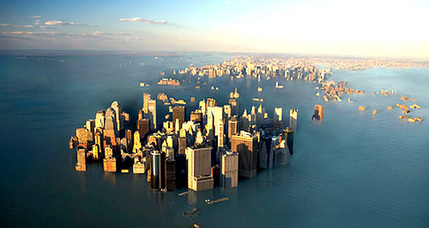
The results of the massive research effort to clarify the situation are now coming in thick and fast and they are all bad. James Hansen has sounded the alarm.
The interesting part is that almost all the science on sea level rise shows that it rises very slowly under natural circumstances. But we are not in a natural situation. We have raised the level of CO2 in the atmosphere to 400 ppm instantaneously in paleological terms and we have raised the temperature by 1.5 C in a nanosecond in Earth’s history terms and there is no precedent for that.
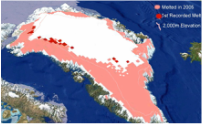
Firstly, it should be mentioned that the atmosphere is not a good conductor of heat and will not melt ice quickly and so this somewhat rules out Greenland because it does not have much ice sitting in the ocean. It is melting fast and will be a contributor and it pays to listen to Greenland specialist Jason Box.
Greenland's meltwater is upsetting the Gulf Stream and may give Europe some very bad weather but it is melting at the rate that could give a 100 to 300 mm of sea level rise quickly. It is part of the picture.
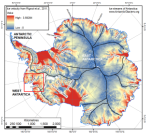

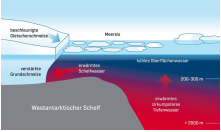
What is happening here is that the temperature differential between the high cold Antarctic and the warming equator is increasing and the winds flowing from the cold to the warm are blowing faster.
This is causing a turnover of the water at the edge of the ice so that the very cold surface water (-2 C) is being blown out to sea (as evidenced by the increasing winter ice) and is drawing the warmer deep water (4 C) nearer the surface. This warmer water has now reached the grounded ice shelves of West Antarctica and melting them from the bottom and it is doing so at a furious rate.
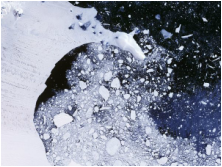
We therefore have to get the honest opinions of five or six leading scientists who are working on the ice and can interpret the results of the research so far and where we are headed.
A quote from The Royal Society of New Zealand emphasises the urgency.
“Experience shows that uncertainties around climate changes can result in decision-making being postponed until changes are clearer. This ‘wait and see’ approach is in itself risky, since the direction and rough magnitude of climate changes, and the associated increases in key risks, are well understood.”
The distilled consensus of opinion appears to be that we can expect the additional 800 mm of sea level rise to make the one metre in around forty to fifty years. Close enough to affect the lives of most people alive today.
The New Zealand governments recommendation to councils is to plan for 500 mm by 2100 which is clearly inadequate.
Here is an even more pessimistic report by people better qualified than me. https://www.kcet.org/redefine/sea-level-rise-could-come-much-sooner-than-you-think


 RSS Feed
RSS Feed